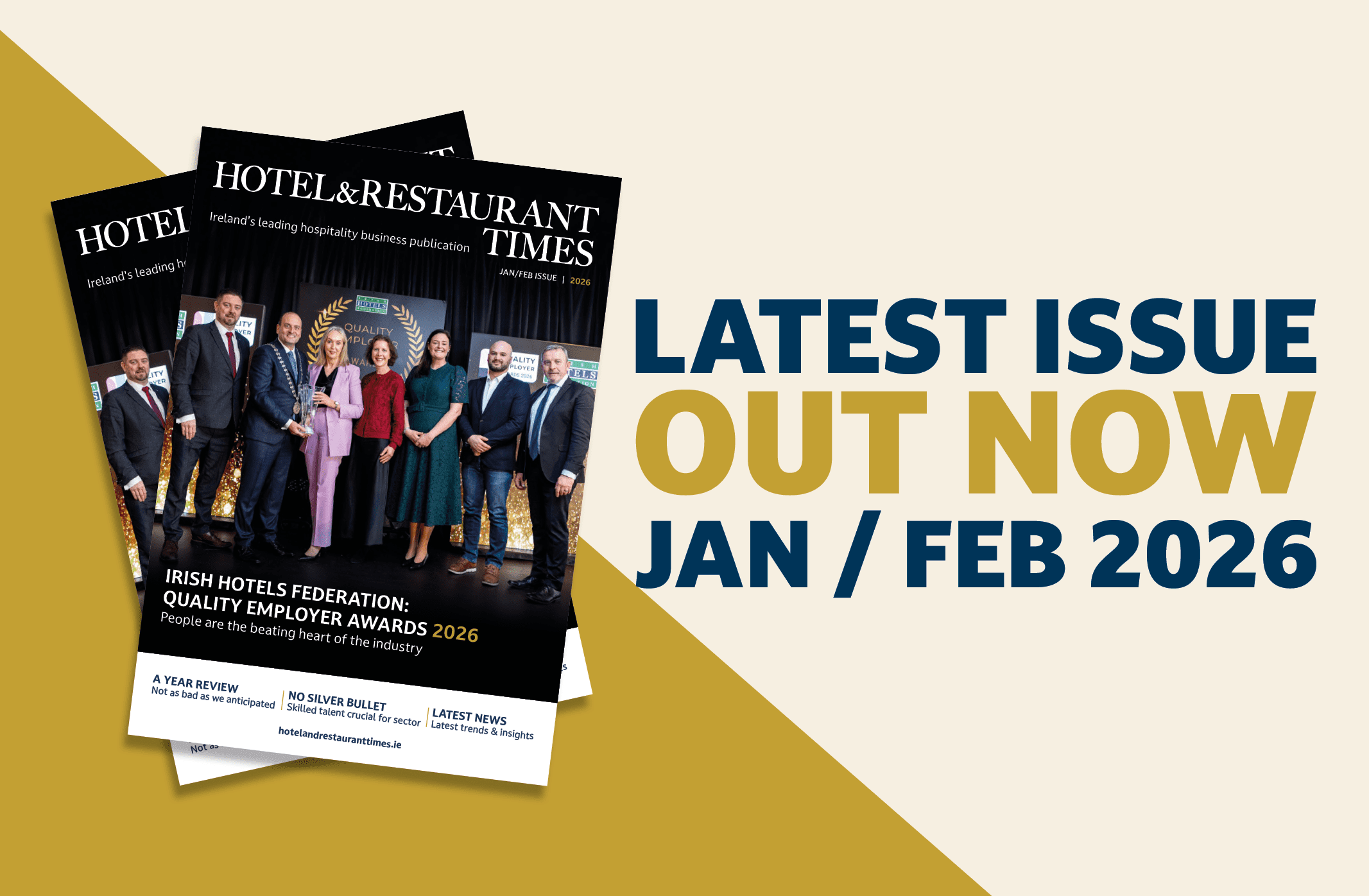
Prices on menus now 26% higher than in 2020 driven by significant cost pressures in the sector
Findings from Bord Bia’s annual Foodservice Market Insights report show that the Irish ‘out of home’ sector increased by 5% in value and overall industry turnover reached a record €10.4 billion across both the Republic of Ireland and Northern Ireland.
While this is the highest level seen within the industry to date, much of this increase has come about due to inflation and higher menu prices driven by significant cost pressures in the sector.
Commenting on these figures, Maureen Gahan, Foodservice Specialist at Bord Bia, explained:
“Although 2025 has seen the Irish foodservice and hospitality sector reach a record value of €10.4 billion, this expansion hasn’t been without difficulties. Many operators still struggle with profitability due to rising costs. However, sectors like education catering and events are experiencing sustained growth. Future growth will depend not only on pricing, but also on collaboration, innovation, and a renewed emphasis on making foodservice both affordable and enjoyable for consumers.”
Key Challenges Facing the Sector
Bord Bia’s research shows that although the sector has been resilient, post-pandemic growth is slowing, and consumer footfall remains mostly unchanged.
The key challenges outlined in the report are:
Operational profitability remains under significant strain, as input costs continue to rise and margin pressures persist.
Menu price inflation – prices on menus are now 26% higher than in 2020. Consumers want to go out and eat but many perceive that dining out has become unaffordable. This is a significant challenge as the industry is unlikely to see any real growth until menu price inflation is in line with or lower than the general inflation rate.
Urban-rural divide: Hotels and pubs continue to show slower recovery than other commercial channels, highlighting the ongoing need for cost management, menu innovation, and targeted value propositions to re-engage consumers who increasingly view dining out as less affordable. Additionally, there is an urban-rural divide with businesses outside of major towns facing greater challenges and resulting in higher closure rates.
Emerging Growth Opportunities:
Despite these challenges, the report highlights key areas of strong performance and emerging opportunity:
Institutional Foodservice saw a notable 15.5% growth, driven largely by the expansion of the Hot School Meals programme in the Republic of Ireland and the Return to Office mandate.
Leisure and Events Hospitality continues to strengthen, demonstrating the enduring consumer appetite for shared experiences. Spending at sporting, cultural and music events remains robust, reflecting a trend of “when they go out, they go all out.”
Limited-Service Restaurants (LSR), including fast-food restaurants and food to go outlets, have also outpaced the market by capturing everyday meal occasions and value-conscious consumers.
A Call for Collaboration to Sustain the Sector’s Future
With projected growth of 5% in 2026, again expected to be driven primarily by inflation, the report underscores that real market growth will only return when menu price inflation aligns more closely with the broader consumer inflation environment, restoring the perception of value for diners.
To overcome shared challenges around labour shortages, wage inflation, and operational efficiency, the report emphasises that collaboration across the supply chain will be critical. Operators, suppliers and organisations must work together to build sustainable talent pipelines and invest in technology as an ‘amplifier’ for the business to improve efficiencies and customer experiences. Menu engineering will continue to be central to delivering value without compromising on quality.
Gahan concluded; “While the operating landscape remains challenging, the outlook is not without opportunity. Our research shows that businesses which clearly articulate their value proposition, execute consistently, and strategically target market share can still outperform, even in a low-growth environment”.
Bord Bia Foodservice Seminar
A gathering of over 300 industry and experts joined Bord Bia at their annual Foodservice Seminar at Johnstown Estate, on November 11th to discuss the current challenges and opportunities for Ireland’s hospitality and foodservice sector. The theme of the seminar ‘Stories in Collaboration’ included insights from people working in the sector including Pat Sullivan, CEO, Master Chefs; Maxine Hyde, General Manager, Ballymaloe Foods; Sean Ryan, Foodservice Account Director, Kerry and Jack Kirwan, Co-founder and CEO, Sprout.
Bord Bia Foodservice Supports
Bord Bia provides a range of ongoing supports to the Irish foodservice industry including market updates and insights, networking and collaboration opportunities, and an annual Foodservice Directory containing over 110 detailed profiles of foodservice operators and distributors.
Photos: Fennell Photography












